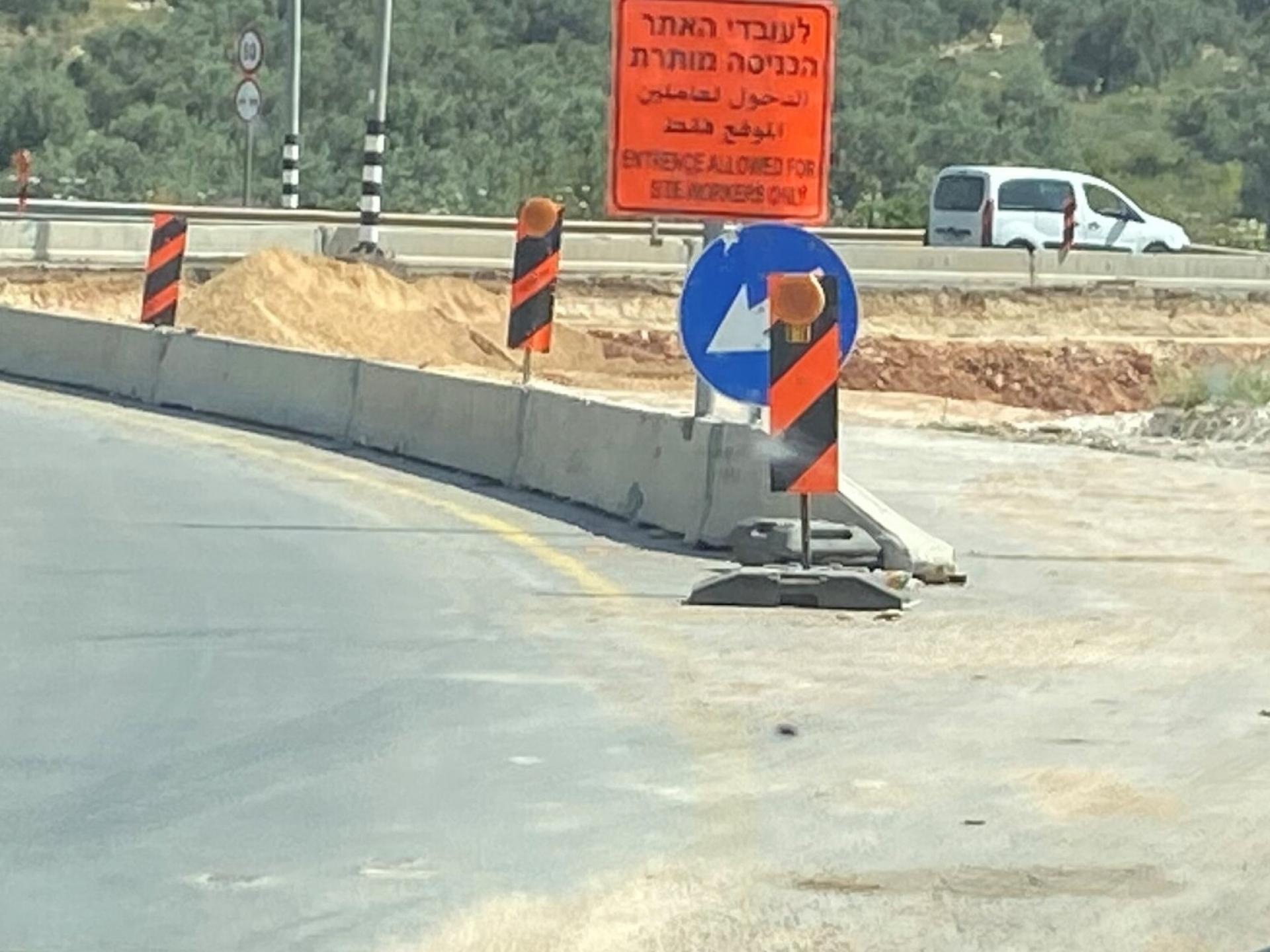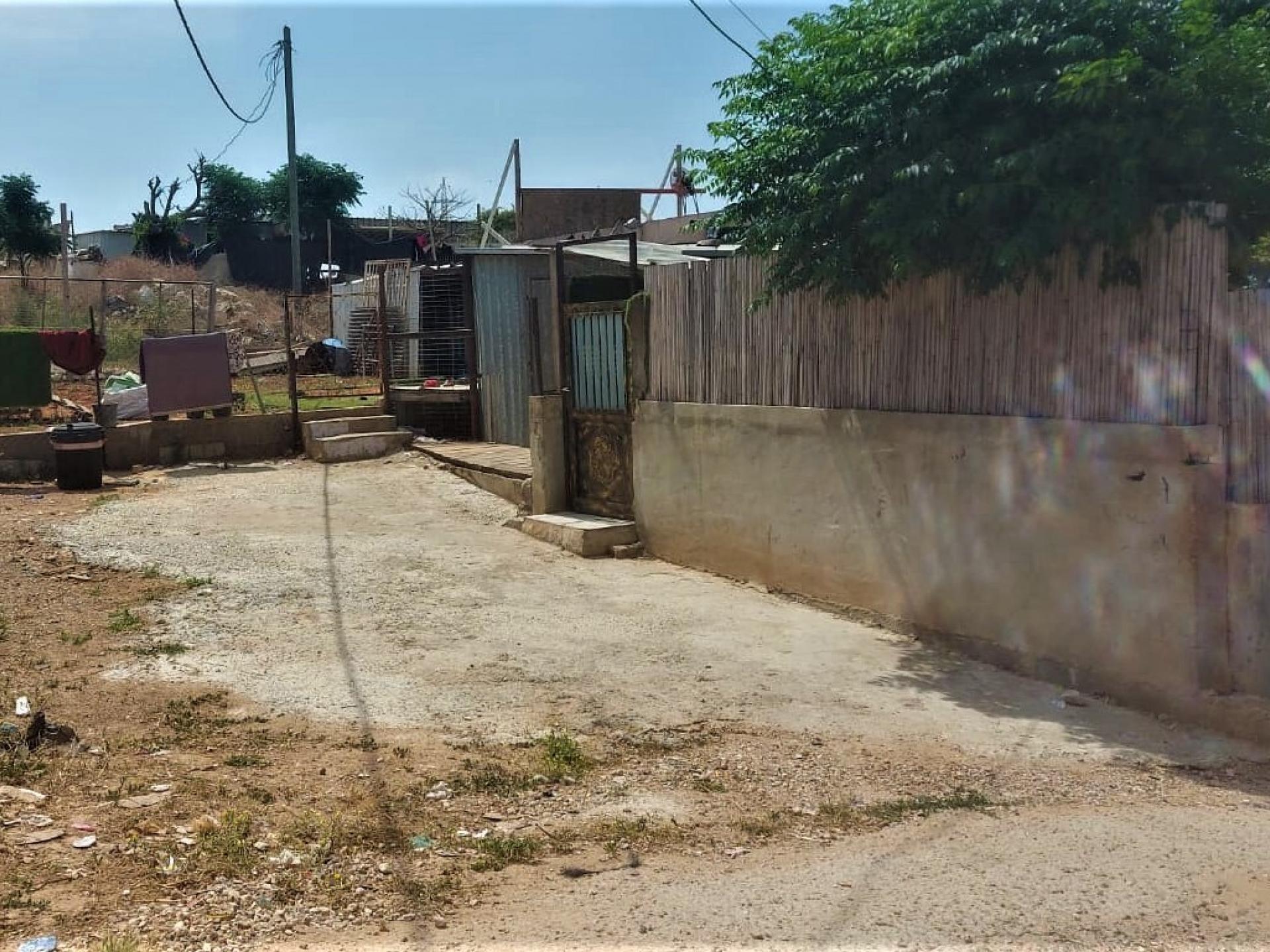Azzun, Arab ar Ramadin
As usual, we visited Azzun to give Z. all the bounty of the previous weeks which had been sitting in Shoshi's car for quite a while, partially because Azzun was under closure for several days. At the entrance to Azzun, there was an armed military vehicle. The checkpoint was open, but the soldiers were watching carefully. In the afternoon, another car joined them, perhaps only to bring food to the soldiers on shift.
for several days. At the entrance to Azzun, there was an armed military vehicle. The checkpoint was open, but the soldiers were watching carefully. In the afternoon, another car joined them, perhaps only to bring food to the soldiers on shift.
Z. and A. suggest coming early, before the children return from school, in case there are disturbances. So, we arrived early and woke Z. up!
He complains. He isn't feeling well and he doesn't have medicine. When we asked about his business, he said there are customers, but he didn't sound confident about the amount of business. Next week he has an appointment in Jerusalem with the doctor who has been treating him devotedly, but he doesn't yet have a travel permit, nor does he have anyone to travel with. We wonder for whom he is waiting?
On the road in front of the Eliyahu checkpoint, there are workers. They are widening the road or something else - not entirely clear - but it looks serious. Altogether, there is a lot of digging going on along the seam, and also around the Bedouin settlements.
We entered Arab a-Ramadin, to see what is happening there, it's been a long time since we were there. At the entrance there is a rather large store which we didn't recognize, and a garage next to it, which had once been a car wash.
There are a lot of houses under construction, despite the demolition notices threatening them for years already. We try to take some photos, but someone arrived immediately and asked us to stop. One can understand why! We stop at the top of the hill, and right away a man stops on a motorcycle together with an elderly person from the village. They are suspicious - who are we, what are we doing there, and whether or not we are photographing. We explain that we only came to see how everyone was doing and that we are "sympathetic". They relax a bit and we could talk. Right now, there are about 400 residents. The young people who marry generally stay in the village, unlike in the past. They bring electricity and water from Habla. There is a school, so the children do not have to cross the checkpoint at Habla every morning and afternoon. People work in Alfei Menashe, a small number in Israel. In order to cross into Israel, they need a permit, then have to cross the checkpoint and pay 2500 NIS to a middleman. It is a lot easier in Alfei Menashe.
The man to whom we were speaking apologized that the head of the local council was not at home, otherwise he would have introduced us to him. We promise to come again since this is indeed a place worth visiting and we, to our regret, skip over it during our shifts.
We continue to the nursery of A. He is very angry at the soldiers at the checkpoint, particularly at the officer, cursing them thoroughly; we have never heard him speak like this. It seems as though the continuous difficult situation is driving him crazy. His nursery is flourishing and there are customers, but the humiliation he endures at the checkpoint daily is painful and makes him angry. Usually, the soldiers are respectful, but right now there seems to be a difficult unit there.


